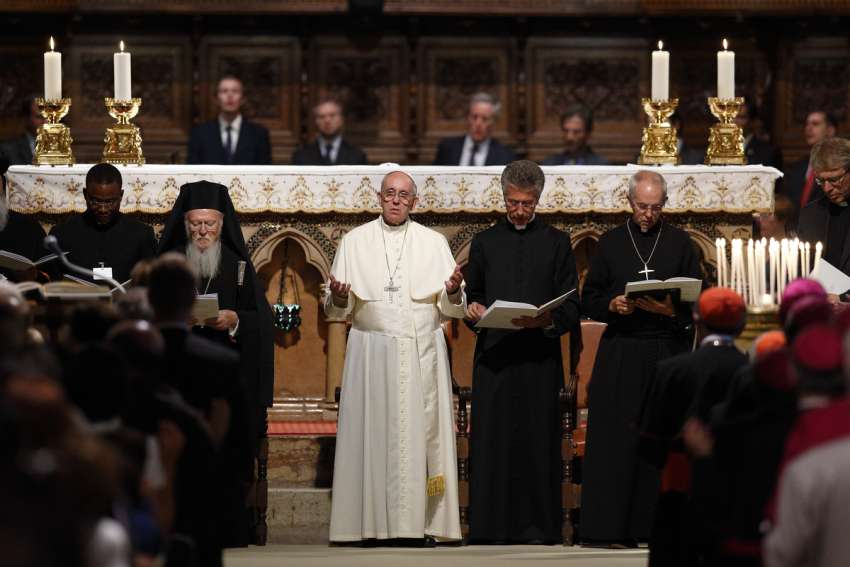Similarly poignant, though less comical, was a priest’s response to a visiting minister, who had come to see him about getting to know each other’s congregations and possibly finding ways to work together. After remarking on the beauty and importance of inter-church (ecumenical) relationships, the priest looked the minister in the eye and said they couldn’t work together because “ecumenism is dead.”
The visiting minister was surprised to find the priest mourning the relationship he had come to develop.
Unlike Tom and Huck, the priest wasn’t opened up to reality by confronting a supposed death. He didn’t discover that divided Christian traditions actually can be worthy of love, and belong together because Christ prays for all to come to unity. To resist this prayer is to go against the very intention of the Creator.
What does it take to open our hearts to God’s power to bring together even what is deeply divided?
The work of the “modern ecumenical movement” has been carried by some of Christianity’s wisest and holiest members. Yet the desire and work for full Christian unity didn’t begin in the 20th century, but in the first. “Full unity” means unity with, and undergirded by, those who have already died — the “Church triumphant” — the dead who, belonging fully to Christ, help hold us all together, in spite of ourselves. As a bishop once observed: “The walls of division don’t reach all the way to Heaven.”
What does it take for us to see? One of those Church members who showed me what it takes is the late Prof. Richard Schneider.
An Orthodox historian, theologian and teacher, Prof. Richard understood that suffering is an essential pathway to unity. It creates a meeting place among us all, sacred because there Christ meets us. The way we respond to suffering has a unique power to bring Christians together, despite mutual hostility or (more difficult still) apathy and indifference. Like St. Paul, Prof. Richard knew by experience and understanding that suffering produces hope, and hope does not disappoint. There’s a power here that can become destructive if abused, but can dissolve walls of hostility and open to us the kingdom of Heaven.
Part of the suffering, and the hope, is that unity among Christians is built on human relationships. They’re called forth by God’s relationship with us and can’t exist except in imitation of the divine Trinity of Persons. Prof. Richard loved encountering others, especially if they belonged to Christian traditions “other” than, and divided from, his own.
A person who had experienced the suffering born of war, he was a lover of dialogue, even with all the risks it entails. He saw that dialogue is one of the most powerful tools we have to help us create something new, repair what is broken or transform what we know. Sometimes we’re reluctant to face the hard conversations, but he saw in them the most interesting and productive subjects, if approached with solid work and in good faith.
I never met a person more passionate than Prof. Richard about, more willing to take risks to speak and hear, the truth. He delighted in discovering new ways to question, explore and express it.
Theological discussion and reflection among Christian traditions that don’t agree or don’t understand each other can happen because of Christ, who brings them together in truth. How then could seeking truth together lead anywhere except closer to each other? On that stands the desire, possibility and hope for ecumenical work. Hence the emphasis Prof. Richard always placed on consensus.
In Prof. Richard, ecumenism was certainly not dead. Some would be more comfortable if it were, and protect themselves from seeing that it’s alive and well, even when it comes in and has espresso with them.
“Before all else,” Richard wrote, “…we must admit that God is the ‘Lover of humankind’ and so God (and we, cooperating in faith) can allow Christ to come into life and its inevitable suffering, not in a triumphant blaze of imperial glory but carrying His own Cross” (John 3:16).
(Marrocco can be reached at mary.marrocco@outlook.com.)


